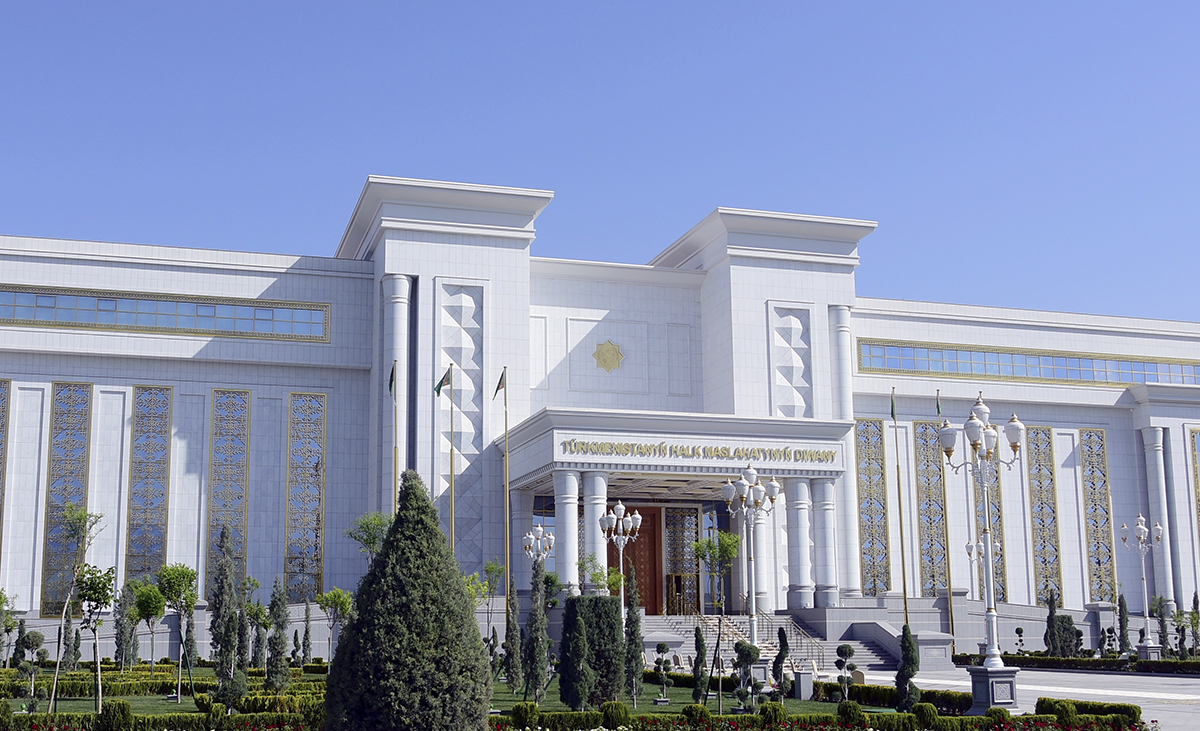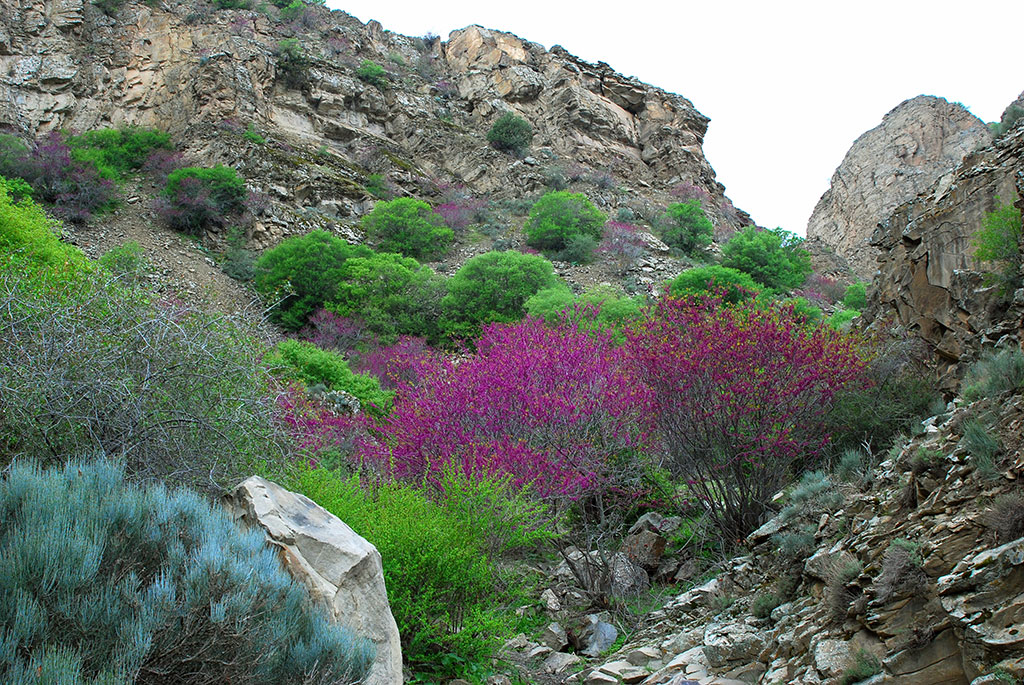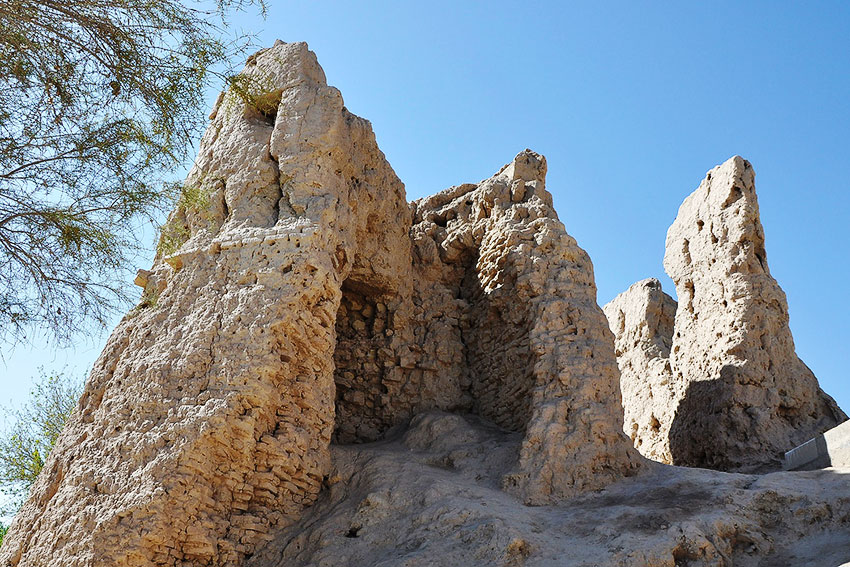Turkmenistan observes the national holiday devoted to melon. The reason for its celebration is unique. There is no similar one in any country of the world. Because such tasty and healing melons that the Turkmen can cultivate ripen nowhere else.
It was fixed already in historical chronicles, which said that melons ripened on the Turkmen land served as delicacy in royal parties, expensive food of eastern rulers. People paid in gold for this wonderful fruit. Batches of dried melon were carried by the caravan ways all over the planet.
The first settlers from Russia and the Caucasus, who came to Turkmenistan in 1881, also appreciated the properties of the Turkmen melon. Fording with the unusually hot climate, they wondered at health, capacity for work and cheerfulness of the local population. Year by year, new citizens of the Turkmen land were convinced that among other things, the rational, correct feeding is of great significance in viability of the Turkmen. Melon, containing all riches of vitamins, mineral salts, microelements, glucose, sucrose, pectin, carotene, takes worthy place here. It not only fed and quenched thirst but also healed a human being.

From time immemorial, the Turkmen knew that pulp of melon has diuretic property. Decoction of young ovaries is applied for treatment of gastric infections and oil of melon seeds cleans the blood vessels. In old times, people took strong, gold yellow melon for caravan way and shepherd’s pasturing. Like sacred Turkmen bread it never got spoilt for a long time and granted people not only strength but also joy of tasty food.
The Turkmen valued melon at their true worth, knew the secrets of its cultivation and were able to store up.
Documents of the Central archive of Turkmenistan tell that in the times of the trans-Caspian oblast, the Turkmen population of every district sowed and grew melons by their own special method. For example, according to data of 1882-1890, in Yoloten, after abatement of flood water, the lands were sown with melon seeds and plants were watered only once during whole ripening period. In Gyzyl-Arbat, local people dug wide holes in autumn for gathering whole rain and winter snow water. In early spring, with first warm sun rays, people sowed the melon seeds round these holes and during whole vegetation and ripening period of fruits, they never watered them. Melons satiated with this natural moisture and ripened under bright sun were unusually sweet, juicy and aromatic. In different villages, people knew various methods of melon seeds’ sowing and care of them, but melons were cultivated in all places. The harvest fell on the hottest days of a year; therefore, the annual harvest of fruits is started at dawn.

Turkmen people had many different stocking methods of melon. They made fragrant and sweet syrup of thick honey from ripe pulp. They also prepared “syok”: wheat flour and sesame seed is added to evaporated melon juice. Such product is preserved 2-3 years. Melon dried under sun is woven in plaits, getting delicious product similar to fruit jelly. Wonderful dried melons were use not only locally but also exported in XIX - beginning XХ centuries. It is interesting that the farmers were able to preserve the winter sorts of melons even till new harvest and their taste became better during preservation.

In a word, the researchers of the trans-Caspian oblast saw the Turkmen melon grower as selfless toiler and noted how “Turkmen melon -the best of well-known ones in the markets of the Russian empire” tells on care of human being. There are only several documents, testifying the glory of the Turkmen melons. From the report on Central Asian exhibition in Moscow, 1891: “Over trans-Caspian oblast, in the department of agriculture and farming, Sarahs melons, pumpkins, white and red cotton, samples of wool purified by manual method were awarded with 5 gold; 7 silver; 3 bronze medals; 42 favorable reviews”. From “Review of trans-Caspian oblast” for 1898: “Watermelon, melon and gourd growing of trans-Caspian oblast is of quite notable significance. Here, melon is one of the main foodstuffs for local people. In the oblast, melon is not only delicacies, but also medicinal agent. The Turkmen of Tejen district practise even special course of melon treatment, applying these ovaries against many ailments”. Same place: “Local melon sorts differ by wonderful qualities, particularly sweet and fragrant”. From “Review of trans-Caspian oblast” for 1911: “In Ashabad ditrict, market gardening deleps well in auls near Ashabad… Large areas are allotted under melons and watermelons. According to taste qualities, the Turkmen melons are excellent”.
It was fixed already in historical chronicles, which said that melons ripened on the Turkmen land served as delicacy in royal parties, expensive food of eastern rulers. People paid in gold for this wonderful fruit. Batches of dried melon were carried by the caravan ways all over the planet.
The first settlers from Russia and the Caucasus, who came to Turkmenistan in 1881, also appreciated the properties of the Turkmen melon. Fording with the unusually hot climate, they wondered at health, capacity for work and cheerfulness of the local population. Year by year, new citizens of the Turkmen land were convinced that among other things, the rational, correct feeding is of great significance in viability of the Turkmen. Melon, containing all riches of vitamins, mineral salts, microelements, glucose, sucrose, pectin, carotene, takes worthy place here. It not only fed and quenched thirst but also healed a human being.

From time immemorial, the Turkmen knew that pulp of melon has diuretic property. Decoction of young ovaries is applied for treatment of gastric infections and oil of melon seeds cleans the blood vessels. In old times, people took strong, gold yellow melon for caravan way and shepherd’s pasturing. Like sacred Turkmen bread it never got spoilt for a long time and granted people not only strength but also joy of tasty food.
The Turkmen valued melon at their true worth, knew the secrets of its cultivation and were able to store up.
Documents of the Central archive of Turkmenistan tell that in the times of the trans-Caspian oblast, the Turkmen population of every district sowed and grew melons by their own special method. For example, according to data of 1882-1890, in Yoloten, after abatement of flood water, the lands were sown with melon seeds and plants were watered only once during whole ripening period. In Gyzyl-Arbat, local people dug wide holes in autumn for gathering whole rain and winter snow water. In early spring, with first warm sun rays, people sowed the melon seeds round these holes and during whole vegetation and ripening period of fruits, they never watered them. Melons satiated with this natural moisture and ripened under bright sun were unusually sweet, juicy and aromatic. In different villages, people knew various methods of melon seeds’ sowing and care of them, but melons were cultivated in all places. The harvest fell on the hottest days of a year; therefore, the annual harvest of fruits is started at dawn.

Turkmen people had many different stocking methods of melon. They made fragrant and sweet syrup of thick honey from ripe pulp. They also prepared “syok”: wheat flour and sesame seed is added to evaporated melon juice. Such product is preserved 2-3 years. Melon dried under sun is woven in plaits, getting delicious product similar to fruit jelly. Wonderful dried melons were use not only locally but also exported in XIX - beginning XХ centuries. It is interesting that the farmers were able to preserve the winter sorts of melons even till new harvest and their taste became better during preservation.

In a word, the researchers of the trans-Caspian oblast saw the Turkmen melon grower as selfless toiler and noted how “Turkmen melon -the best of well-known ones in the markets of the Russian empire” tells on care of human being. There are only several documents, testifying the glory of the Turkmen melons. From the report on Central Asian exhibition in Moscow, 1891: “Over trans-Caspian oblast, in the department of agriculture and farming, Sarahs melons, pumpkins, white and red cotton, samples of wool purified by manual method were awarded with 5 gold; 7 silver; 3 bronze medals; 42 favorable reviews”. From “Review of trans-Caspian oblast” for 1898: “Watermelon, melon and gourd growing of trans-Caspian oblast is of quite notable significance. Here, melon is one of the main foodstuffs for local people. In the oblast, melon is not only delicacies, but also medicinal agent. The Turkmen of Tejen district practise even special course of melon treatment, applying these ovaries against many ailments”. Same place: “Local melon sorts differ by wonderful qualities, particularly sweet and fragrant”. From “Review of trans-Caspian oblast” for 1911: “In Ashabad ditrict, market gardening deleps well in auls near Ashabad… Large areas are allotted under melons and watermelons. According to taste qualities, the Turkmen melons are excellent”.






